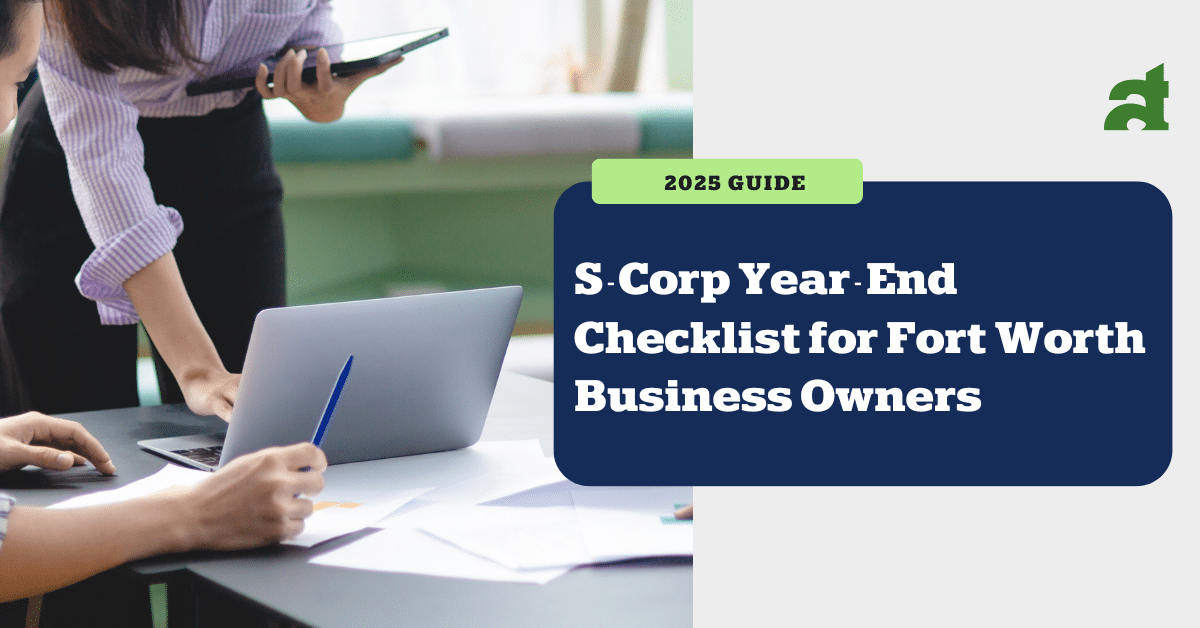
Running an S-Corp can deliver serious tax savings, but it also comes with year-end responsibilities that you can’t afford to overlook.
Unlike a sole proprietorship or single-member LLC, you now have payroll, corporate filings, and tax forms that must be squared away before December 31.
If you own an S-Corp in Fort Worth, here’s a practical checklist to make sure you close out the year correctly and avoid IRS headaches.
The IRS expects you to pay yourself a reasonable salary before taking distributions. If your salary looks too low compared to the work you do, it can trigger penalties.
Now is the time to double-check:
If you’ve taken too much in distributions and too little in wages, you may need to adjust before the year closes.
As an S-Corp, you’re both an owner and an employee. That means you must file and pay payroll taxes on time. At year-end, review that:
Getting behind on payroll filings is one of the fastest ways to rack up penalties.
By January, you’ll need to issue tax forms for both yourself and any employees. Common requirements include:
Make sure your bookkeeping is clean so these forms can be filed on time.
Your S-Corp will file a corporate return (Form 1120-S). That means your books need to be in order. Go through your accounting software or work with your CPA to verify:
Clean books make tax season smoother and reduce the risk of mistakes.
Remember, distributions aren’t subject to self-employment tax, but they are subject to income tax. Review how much you’ve taken out and whether your estimated payments cover the tax you’ll owe. If not, consider making an additional estimated tax payment before year-end.
Year-end is the time to pull together documents your CPA will need for the corporate return. That includes:
Having everything ready avoids delays in filing your S-Corp return.
Year-end isn’t just about closing the books. It’s also a chance to plan ahead. Ask yourself:
Thinking strategically in December helps you maximize the benefits of S-Corp status going forward.
Owning an S-Corp in Fort Worth can lower your taxes, but only if you follow through with payroll, filings, and recordkeeping.
Treat year-end as your checkpoint. Review your salary, get payroll filings squared away, clean up your books, and prep for the corporate return.
Do this every year, and you’ll stay compliant, avoid penalties, and actually capture the tax savings that make an S-Corp worthwhile.
Until next time!